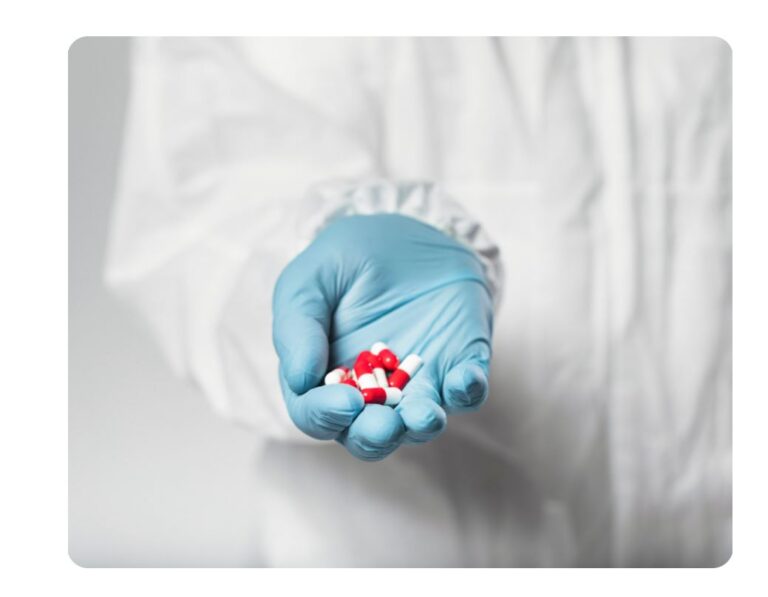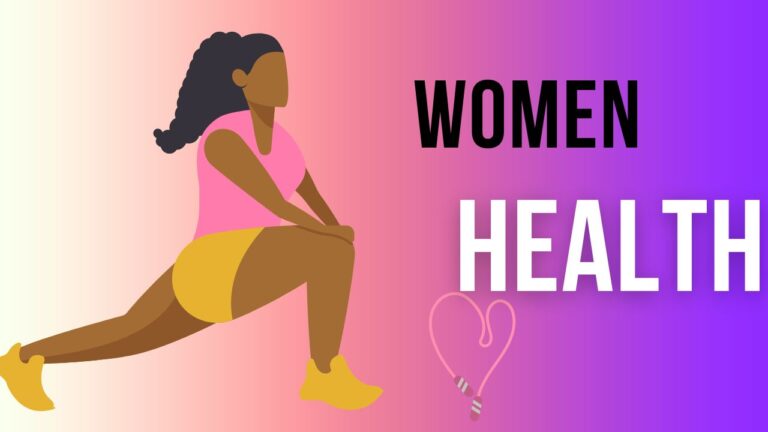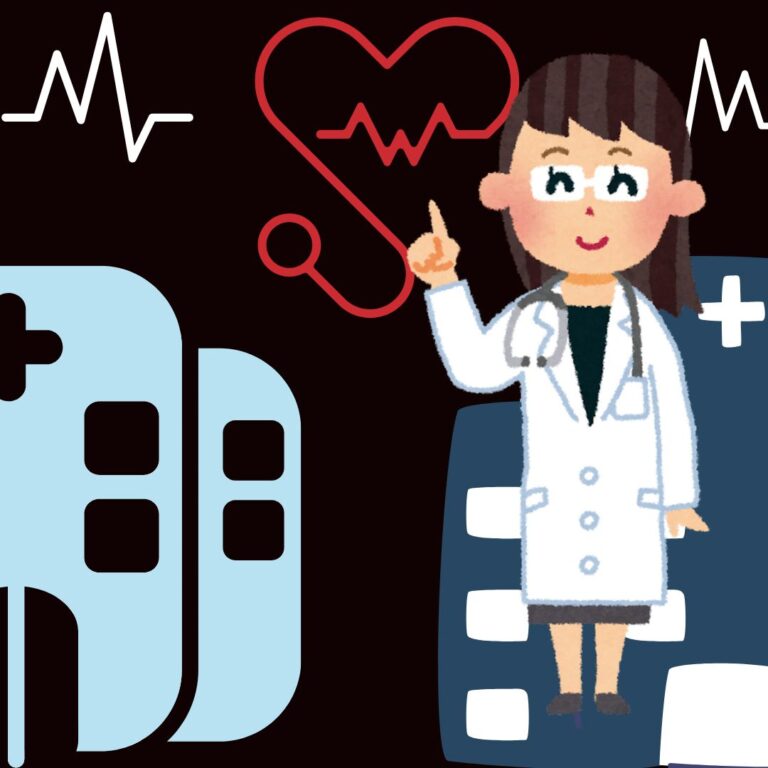The Elusive “Best”: Reframing the Conversation Around Women’s Health
When it comes to health products specifically designed for women, the sheer volume of options can be overwhelming. From targeted supplements to innovative tech, the market is saturated with solutions promising to enhance well-being. But the question lingers: is there truly a single “best” world health product for women?
The short answer, and perhaps a slightly frustrating one, is no. There’s no magic bullet, no one-size-fits-all solution when it comes to the complex tapestry of women’s health. Our needs are diverse, influenced by age, genetics, lifestyle, cultural background, and individual health conditions. What works wonders for one woman might be ineffective or even unsuitable for another.
Which supplement is best for overall health for female?
When it comes to overall health, the best supplements for women should cover a broad range of essential nutrients that support various aspects of well-being, including bone health, immune function, heart health, and hormonal balance. Here are some key supplements that are beneficial for women:
1. Multivitamins for Women
A high-quality multivitamin specifically designed for women can help fill nutritional gaps in the diet and support overall health. Look for one that includes a broad spectrum of vitamins and minerals, including:
- Vitamin D: Supports bone health, immune function, and mood regulation.
- Vitamin B12: Important for energy production and nervous system health.
- Folate: Crucial for women of childbearing age to prevent birth defects and support cellular health.
- Iodine: Essential for thyroid health.
Omega-3 Fatty Acids (Fish Oil or Algal Oil)
Omega-3s are essential fats that have powerful anti-inflammatory effects and support heart health, cognitive function, and mood regulation. Omega-3 fatty acids (EPA and DHA) are especially beneficial for:

- Reducing the risk of heart disease
- Supporting brain function and mental health
- Reducing inflammation, which can aid in conditions like arthritis
Calcium
Calcium is essential for strong bones and teeth, and women are at a higher risk of osteoporosis as they age, especially post-menopause. Calcium supplementation can help prevent bone loss and reduce the risk of fractures. It’s best to take calcium with Vitamin D, as Vitamin D enhances calcium absorption.
Vitamin D
Vitamin D plays a critical role in bone health, immune function, and mood regulation. Many women are deficient in Vitamin D, particularly those who live in areas with limited sunlight. Supplementing with Vitamin D can help:

- Improve bone density
- Support immune function
- Enhance mood and reduce the risk of depression
Magnesium
Magnesium is a mineral that supports over 300 biochemical reactions in the body. It is important for:

- Muscle and nerve function
- Regulating blood pressure
- Supporting bone health
- Reducing symptoms of PMS (premenstrual syndrome)
Probiotics
Probiotics are beneficial bacteria that help maintain gut health. A healthy gut is essential for proper digestion, immune function, and overall well-being. Probiotics may support:

- Digestion and nutrient absorption
- Immune health
- Skin health (especially in managing acne or eczema)
7. Iron
Iron is essential for carrying oxygen in the blood and preventing anemia. Women of reproductive age, especially those with heavy menstrual periods, may be at risk of iron deficiency. Iron supplements can help:

- Boost energy levels
- Prevent fatigue and weakness
- Support red blood cell production
8. Collagen
Collagen supplements are popular for supporting skin elasticity and reducing the appearance of wrinkles. Collagen is also beneficial for joint health and maintaining the integrity of connective tissues. As we age, collagen production naturally declines, so supplementing with collagen may help:
- Improve skin health and reduce wrinkles
- Strengthen hair and nails
- Support joint and cartilage health
9. Coenzyme Q10 (CoQ10)
CoQ10 is an antioxidant that supports energy production at the cellular level and protects cells from oxidative damage. It is particularly important for women over 40, as CoQ10 levels naturally decline with age. Benefits include:
- Boosting energy levels
- Supporting heart health
- Improving skin health
Biotin
Biotin (Vitamin B7) is a water-soluble vitamin that is essential for the metabolism of fats, proteins, and carbohydrates. It also supports healthy hair, skin, and nails. Biotin supplementation is commonly used to:
- Promote hair growth and strength
- Improve nail health
- Support healthy skin
Considerations Before Supplementing:
- Diet: It’s important to note that supplements should not replace a balanced, nutrient-rich diet. It’s always best to obtain nutrients from whole foods when possible.
- Consult a Healthcare Provider: Before starting any new supplement regimen, it’s wise to consult with a healthcare provider, especially for women who are pregnant, breastfeeding, or have any underlying health conditions.
- Quality: Choose high-quality supplements that have been third-party tested for purity and potency.
What is the most credible health source?
When seeking credible health information, it’s important to prioritize sources that are evidence-based, peer-reviewed, and guided by established medical standards. The most reliable health sources are typically those that are rooted in rigorous scientific research and are overseen by healthcare professionals or institutions with expertise in medicine, public health, and research. Here are some of the most credible health sources:
Government Health Agencies
Government health organizations are among the most trusted sources of health information. They are responsible for public health guidance, disease prevention, and health policy. These organizations typically base their recommendations on scientific research and data collected from a wide variety of studies. Notable examples include:
- Centers for Disease Control and Prevention (CDC): The CDC is the leading national public health institute in the U.S. It provides authoritative information on diseases, vaccinations, health statistics, and prevention strategies.
- CDC Website
- National Institutes of Health (NIH): A branch of the U.S. Department of Health and Human Services, the NIH is responsible for conducting and funding medical research. It provides up-to-date, peer-reviewed health information on a vast array of topics, from cancer to mental health.
- NIH Website
- World Health Organization (WHO): The WHO is a specialized agency of the United Nations that provides global leadership in public health, setting international standards and guidelines for health.
- WHO Website
- National Health Service (NHS): The NHS in the UK offers reliable, evidence-based health advice and is widely regarded as one of the most trustworthy health systems globally.
These agencies typically ensure that their information is backed by high-quality research, peer-reviewed studies, and expert recommendations.
Academic Medical Centers and Universities
Major academic medical centers and universities conduct cutting-edge research and offer healthcare services that are based on the latest scientific findings. Their websites and publications are credible because they are backed by the expertise of renowned doctors, researchers, and medical professionals. Some notable examples include:
- Mayo Clinic: An internationally respected medical research and treatment center, Mayo Clinic provides evidence-based information on health conditions, treatment options, and wellness.
- Mayo Clinic Website
- Johns Hopkins Medicine: Johns Hopkins is another leading academic medical institution known for its high standards in research, healthcare, and educational programs.
- Johns Hopkins Medicine Website
- Harvard Medical School: Harvard Medical School is one of the most prestigious institutions for medical research and education. It offers credible, research-based health information through its own platforms and collaborations.
- Harvard Health Publishing
Peer-Reviewed Medical Journals
Peer-reviewed journals are perhaps the gold standard in terms of scientific credibility. These journals publish research that has been reviewed by experts in the field before it is published, ensuring that the findings are scientifically sound. Some of the most respected peer-reviewed medical journals include:
- The Lancet: A renowned medical journal that publishes research on a wide range of medical and health topics. It is considered one of the most prestigious medical journals in the world.
- The Lancet Website
- New England Journal of Medicine (NEJM): Another highly respected journal that publishes high-quality, peer-reviewed clinical research and reviews.
- NEJM Website
- JAMA (Journal of the American Medical Association): JAMA publishes cutting-edge research on medicine, public health, and clinical practice, and is widely regarded as one of the most influential medical journals.
- JAMA Website
- BMJ (British Medical Journal): BMJ publishes evidence-based research and clinical content that is highly respected in the medical community.
- BMJ Website
These journals are particularly valuable for staying updated on the latest in medical research and clinical practices.
Non-Profit Health Organizations and Foundations
Non-profit organizations that specialize in health research and disease prevention are another trusted source of health information. These organizations conduct research, support patient advocacy, and provide educational resources. Notable examples include:
- American Heart Association (AHA): The AHA is dedicated to reducing the risk of heart disease and stroke. It offers trustworthy information about cardiovascular health, prevention, and treatment.
- AHA Website
- American Cancer Society (ACS): The ACS provides expert information on cancer prevention, treatment options, and research findings, helping individuals make informed decisions.
- ACS Website
- American Diabetes Association (ADA): The ADA offers credible resources and research on managing and preventing diabetes, including lifestyle recommendations and treatment guidelines.
- ADA Website
Health Professional Associations
Professional medical associations often serve as reliable sources of information, providing expert advice, clinical guidelines, and the latest research for specific medical specialties. These associations are made up of trained healthcare professionals who are experts in their respective fields. Examples include:
- American Medical Association (AMA): The AMA offers health professionals and the public information on healthcare policy, medical ethics, and clinical best practices.
- AMA Website
- American Psychological Association (APA): The APA provides valuable resources on mental health, therapy, and psychological research, ensuring evidence-based advice in mental wellness.
- APA Website
- American Academy of Pediatrics (AAP): The AAP offers reliable health information for children, focusing on pediatrics, immunizations, and childhood development.
- AAP Website
Reputable Health Websites and Online Platforms
Some online platforms curate information from credible sources and provide easy access to medical research and health guidelines. These platforms often aggregate content from respected health agencies, journals, and universities. Examples include:
- UpToDate: A clinical decision support resource widely used by healthcare providers. It provides evidence-based information on a wide range of medical conditions and treatments.
- WebMD: While WebMD is a popular online resource, it is important to verify the credibility of articles as it can sometimes feature sponsored content. However, it does provide reliable medical information and references healthcare professionals.
Is women’s health a reputable source?
Women’s Health is a well-known magazine and media platform that focuses on health, fitness, nutrition, and lifestyle topics for women. It covers a wide range of subjects, from physical and mental well-being to beauty, relationships, and overall lifestyle. It provides expert advice, tips, and articles on managing health, fitness, and wellness for women of all ages.
However, the reputation of any source—whether it’s Women’s Health or another publication—depends on several factors:
Editorial Standards and Expertise
Women’s Health, like many other reputable magazines, often collaborates with health professionals, doctors, dietitians, fitness trainers, and other experts in their articles. These experts help ensure that the information is based on scientific research or clinical evidence. For example, the magazine might feature interviews with licensed healthcare providers or reference studies from peer-reviewed journals.
That said, it’s always important to check whether the information is supported by reliable sources. While Women’s Health generally provides accurate and trustworthy information, like all media outlets, there can sometimes be pieces that are not as thoroughly researched or that lean towards trends or popular opinions. This is why it’s advisable to cross-check health-related claims with trusted medical organizations, academic research, or your own healthcare provider.
Content Focus and Bias
While Women’s Health does feature a lot of expert advice, some articles are geared more toward general lifestyle tips, personal experiences, or wellness trends, which may not always be based on clinical evidence. As a lifestyle magazine, there can sometimes be a greater emphasis on wellness fads or products that may not have scientific backing. For example, trends in diets, supplements, or workout regimens might be presented in a way that highlights their popularity rather than their effectiveness for everyone.
Peer-Reviewed Sources
In its health-related content, Women’s Health magazine often cites studies and expert opinions. However, it is important to consider whether the information comes directly from peer-reviewed scientific journals, medical studies, or well-known health organizations (like the Centers for Disease Control and Prevention, Mayo Clinic, or National Institutes of Health). When reading articles that discuss topics like supplements, treatments, or conditions, cross-referencing with clinical studies or professional health resources is always a good practice.
Advertisements and Sponsored Content
One thing to be mindful of when reading health-related content in magazines or on websites like Women’s Health is sponsored content or advertisements. Advertisers may sponsor articles related to supplements, beauty products, or fitness routines, which could influence the tone or content of the article. While reputable publications aim to clearly distinguish between editorial content and advertisements, it’s still important to approach this content with a discerning eye.
Use of Sources and Citations
Reputable sources will cite reliable and verifiable data. For instance, when Women’s Health discusses a medical or health-related topic, it will often mention where the information comes from, such as studies from universities, research institutions, or government health bodies. This helps provide context for the claims made in the articles. If an article doesn’t offer citations or relies too heavily on anecdotal evidence or expert opinions without supporting studies, it’s important to critically assess the information.
Target Audience
Women’s Health is tailored for women, particularly those interested in fitness, nutrition, mental health, and general wellness. The content is curated to resonate with a broad audience, from women seeking advice on balancing family and work to those looking for fitness tips or support in managing chronic health conditions. While it provides practical tips and solutions, remember that advice for women’s health can vary greatly depending on personal factors like age, health history, and lifestyle.
Credibility in Health Reporting
Women’s Health magazine has generally earned its reputation as a reliable source for health and wellness information, but like with any media outlet, it’s important to approach it as part of a broader approach to understanding health information. If you’re looking for medical advice or treatment, it’s always best to consult a healthcare professional rather than relying solely on media articles.
Is Women’s Health Reputable?
Yes, Women’s Health is generally considered a reputable source for health and wellness content, particularly in terms of lifestyle, fitness, and general well-being advice for women. However, as with any magazine or media outlet, it’s important to critically evaluate the content, especially when it comes to medical or scientific claims. For more serious health concerns or treatment advice, it’s always a good idea to consult directly with a healthcare provider or reference primary scientific literature.
However, instead of searching for a singular “best” product, perhaps we should shift our focus to identifying the best approaches and principles that underpin women’s health globally. This perspective allows for a more nuanced and empowering conversation, moving beyond specific commodities to encompass the fundamental elements that contribute to true well-being.
Instead of a Product, Consider These Powerful Pillars:
- Access to Comprehensive Healthcare: This is arguably the most crucial “product” for women worldwide. Access encompasses everything from routine check-ups and screenings (like mammograms and pap smears) to family planning services and care during pregnancy and childbirth. Ensuring affordability, geographical accessibility, and culturally sensitive care is paramount. This foundational access empowers women to be proactive about their health and address concerns early.
- Information and Education: Knowledge is power. Providing women with accurate and accessible information about their bodies, reproductive health, mental well-being, and healthy lifestyle choices is essential. This could involve educational programs, digital resources, community outreach initiatives, and destigmatizing conversations around traditionally taboo topics. Empowered with knowledge, women can make informed decisions about their health and advocate for their needs.
- Menstrual Health Management: This seemingly simple aspect is a critical component of women’s well-being that is often overlooked or stigmatized. Providing access to affordable and safe menstrual products (like pads, tampons, or menstrual cups), along with education on menstrual hygiene and conditions like endometriosis or PCOS, is crucial. Addressing menstrual poverty and promoting open conversations around menstruation can significantly impact a woman’s dignity, comfort, and ability to participate fully in society.
- Mental and Emotional Well-being Resources: Women often juggle multiple roles and face unique stressors that can impact their mental health. Access to mental health services, including therapy, counseling, and support groups, is vital. Furthermore, promoting self-care practices, mindfulness, and stress-management techniques can help women build resilience and prioritize their emotional well-being.
- Empowerment and Agency: Ultimately, the “best” approach involves empowering women to take control of their own health. This includes fostering autonomy in healthcare decisions, addressing gender inequality that impacts health outcomes, and creating supportive communities where women feel safe and encouraged to prioritize their well-being.
The Role of Specific Products:
While there isn’t a single “best” product, specific tools and technologies can play a valuable role in supporting these broader pillars. For example:
- Period tracking apps: Empower women to understand their cycles and identify potential health issues.
- Telehealth platforms: Expand access to healthcare, particularly for women in remote areas or those facing mobility challenges.
- Nutrient-rich food supplements (when genuinely needed and recommended by a healthcare professional): Can address specific deficiencies.
- Ergonomic products: Can improve comfort and prevent physical strain, especially for women in certain professions or those with specific health conditions.
Moving Forward:
Instead of searching for the mythical “best” product, let’s focus on creating a world where all women have access to the resources, information, and support they need to thrive. This requires a multi-faceted approach, addressing systemic inequalities, promoting education, and ensuring access to quality healthcare.
The true “best” health product for women isn’t something you can buy. It’s an environment that empowers, supports, and prioritizes their holistic well-being. It’s about recognizing the diverse needs of women and working towards a future where every woman has the opportunity to live a healthy and fulfilling life.





